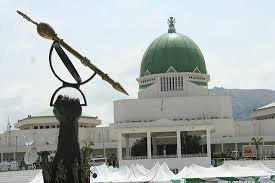As Nigeria marks its 25th year of uninterrupted democracy, the Socio-Economic Research and Development Centre (SERDEC) has called for collective efforts to deepen the country’s democratic values and address longstanding challenges.
In a statement released on Democracy Day, SERDEC commended Nigerian citizens for their resilience in sustaining democratic rule despite trials and difficulties encountered along the journey.
The statement read, “While democracy may not have delivered the expectations and desired dividends of rapid socio-economic and political development, the fact that democracy is still in existence brings hope for a better tomorrow through a collective interest, brotherhood, and patriotic effort.”
SERDEC acknowledged that no democracy is immune to challenges, but emphasized that resilience and effective leadership can provide solutions to good governance.
Despite being a leading oil producer, Nigeria continues to grapple with poverty, corruption, deteriorating living standards, and economic instability, according to SERDEC. The organization cited global statistics that portray the country negatively on various indices, including corruption, the environment, health, insecurity, unemployment, and ineffective social reforms.
“Nigeria stands today as the poverty capital of the world,” SERDEC stated, adding that the country’s economy, once Africa’s biggest, has now slipped to the fourth position on the continent.
Addressing Workers’ Wages and Corruption
SERDEC called on President Bola Ahmed Tinubu to urgently address the lingering issues concerning the wages of Nigerian workers.
“The current wage system for Nigeria workers violates the fundamental rights to live, a crime against humanity, and can only be referred to as an economic genocide,” the statement said.
The organization emphasized that no nation can be productive until it takes its workforce seriously, proposing that the proposed N62,000 minimum wage is “grossly insufficient” to meet basic needs for a healthy and productive economy.
SERDEC also urged the government to intensify its fight against corruption, which has “adverse effects on both revenue and expenditure sides of government budgets and has immensely contributed to the collapse of infrastructure and poor service delivery.”
“Corruption is deep-seated with a weak system,” the statement read, commending the government’s efforts to prosecute former ministers and agency heads involved in corrupt practices while calling for more confidence-building actions and an approach that upholds open government principles.
Role of the Judiciary in Sustaining Democracy
Addressing the role of the judiciary, SERDEC stated, “An effective democratic system can only be sustainable when law and order can be guaranteed by a sound and impartial judicial system.”
However, the organization expressed concern over accusations of conflicting orders and decisions on political matters by some members of the judiciary, leaving Nigerians “confused as to the role of the judiciary as a platform to seek for justice in a democratic system or a tool in the hands of the political elites.”
SERDEC urged the judiciary to be more independent, unbiased, and courageous in delivering judgments that will thrive democracy and build confidence in the judicial system.
The statement emphasized that consolidating democracy in Nigeria must come from an in-depth patriotic commitment to accountability, transparency, inclusion, and responsiveness. SERDEC called on the government to “show bold steps toward building trust in leadership” and quickly address the growing poverty and hunger cases.
The statement read, “Democracy in Nigeria is our collective business as a nation-state, In a democracy, the concept of people is very critical in the measurement of the indices of her survival, growth, and sustainability.”
As Nigeria looks forward to sustaining its democracy, SERDEC urged the government to reform the political system and make it unattractive to “political vultures who pilfer and wreak the national treasury” by cutting the cost of governance.

























